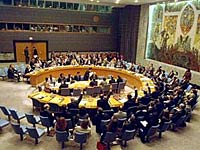|
|||||||||||||||||||||||||||
| International Relations - IRELA23429 | |||||||||||||||||||||||||||
This plan is only available to students commencing from 2009 onwards
A contemporary, dynamic, discipline, International Relations is the study of politics at the international, cross-national, transnational, regional, and global, level. Although a relatively modern discipline, it is one of increasing relevance in the contemporary world because of what can be broadly termed globalization. We are constantly reminded of the impact of international relations on everyday lives from climate change to agricultural trade, from terrorism to refugees. A major in International Relations is therefore at the cutting edge of current concerns. The solutions to many national problems are now intricately linked with regional and international treaties and conventions. International Relations is most closely related to the study of Politics but it is has links with other disciplines, including International History, Economics, and Law. UNSW has research strength in several sub-disciplines of International Relations, including International Political Economy, and the Politics of International Law. Students graduating from UNSW with a Minor in International Relations should be able to demonstrate:
Students will also develop discipline-specific and generic social science skills, including being able to:
A student who wishes to gain a Minor in International Relations must complete 36 units of credit including 12 uoc at Level 1, at least 12 uoc at Level 2 and at least 12 uoc at Level 3.
Level 1
Level 2
International Relations Courses: The following courses from other subject areas can also be counted towards the International Relations Minor:
Level 3
International Relations Courses:
The following courses from other subject areas can also be counted towards the International Relations Minor:
|
|||||||||||||||||||||||||||



